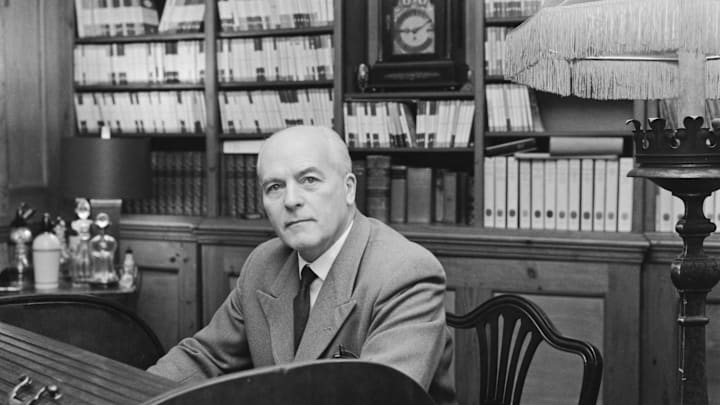Sir Allen Lane was the creator of Penguin Books, which is credited with popularizing high-quality mass-market paperbacks. Paperbacks existed prior to Penguin, but they were often poorly made or had trashy subject matter. Lane changed all that: He published classic literature in paperback form and legitimized the paperback. He also offered them at an affordable price (sixpence per book at launch, or about the same as a pack of cigarettes). According to an archived version of Penguin’s website, it all came about after Lane paid a visit to Agatha Christie:
“[H]e found himself on a platform at Exeter station searching its bookstall for something to read on his journey back to London, but discovered only popular magazines and reprints of Victorian novels.
Appalled by the selection on offer, Lane decided that good quality contemporary fiction should be made available at an attractive price and sold not just in traditional bookshops, but also in railway stations, tobacconists and chain stores.”
One of the ways Lane brought books to non-bookstore locations was the “Penguincubator,” a vending machine for his paperbacks that he invented in 1937. (He may have gotten the idea from the German publisher Reclam, which first made book vending machines in the 1910s.) You can see a photo of the machine here.
James Bridle writes at Publishing Perspectives that the first Penguincubator was located outside Henderson’s—a bookshop called “The Bomb Shop” due to the fact that it sold radical literature—at 66 Charing Cross Road. This “signaled his intention to take the book beyond the library and the traditional bookstore, into railway stations, chain stores and onto the streets.”
Unfortunately, the idea wasn’t exactly a successful one: As one bookseller recounted in The British Book Trade: An Oral History, “it had to be wheeled out and locked at the front of the shop every night, then brought in every morning. And every morning, apparently, there were letters of complaint shoved under the door: ‘We put a shilling in this machine and no book came out of it.’ It was a complete failure.”
While the Penguincubator is no longer around, you can find a Penguin Books Vending Machine in England’s Exeter St Davids Train Station that was installed in 2023 in honor of Lane’s search for a book there all those years ago. According to the city of Exeter, “The machine has proven to be a hit with locals and commuters alike, garnering millions of views thanks to a string of viral social media posts and national press attention that lauded its uniqueness.” And in 2025, the machine “will play host to a curated selection of books from Penguin’s 90 years of publishing success with Exeter City of Literature managing the unique book dispenser’s inventory. Customers can expect to encounter a series of themed books in the machine to celebrate Exeter’s place in the bookish world as one of only 53 UNESCO Cities of Literature.”
Discover More Stories About Books and Reading:
